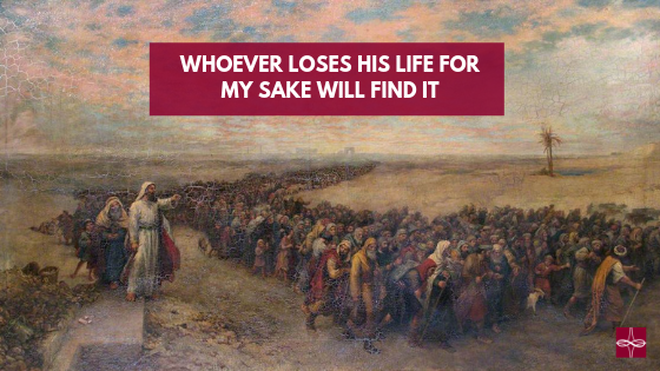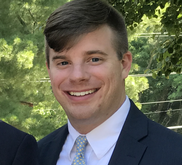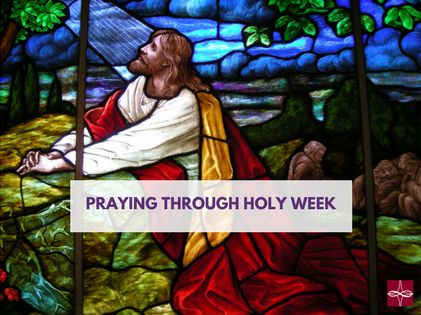|
“Then Jesus said to His disciples, ‘If anyone wishes to come after Me, he must deny himself, and take up his cross and follow Me. For whoever wishes to save his life will lose it; but whoever loses his life for My sake will find it’” (Matthew 16:25). For about three months, culminating on Easter Sunday, I took part in a spiritual program for Catholic men focused on prayer, ascetism, and fraternity. During this program, men ‘unplug’ from the world, deny themselves, and live in a specifically intentional way for the Kingdom of God. This journey requires men to participate in fraternity with other men, read Scripture and reflections each day, spend at least 30 minutes in prayer with the Blessed Sacrament, and then other things, including: no social media, no computer or phone if not for work or other mandatory tasks like paying bills, taking a cold shower every morning, no sweets, no snacking between meals, no alcohol, getting at least 7 hours of sleep each night, no watching sports, and fasting and abstaining from meat every Wednesday and Friday. This is a journey through the Book of Exodus alongside Moses and the Israelites as they escape slavery in Egypt and learn how to live in true freedom in the Promised Land. The Book of Exodus is a brilliant metaphor for the modern man, called to a freedom rooted in the ability to choose the good for the sake of God and His Kingdom as opposed to a having a ‘false freedom’ and being a slave to desires and passions. Receiving screen time reports on my iPhone each week made me realize how much of a slave I am to my cell phone – to social media, to sports, to instant gratification. I desired to free myself from my phone in a radical way, which this program helped me achieve. This is just one example of how this journey invited me to restructure my day and rid myself of lazy habits. This journey was hard: the first few weeks were hard; the last few weeks were hard. I wasn’t perfect at maintaining all of the disciplines of the program. I can recall starting the cold water for the shower in the morning and letting it run for 5 minutes trying to pump myself up to jump in. This happened many times. But after 3 or 4 weeks, I was jumping right in. The old adage is true: First we make our habits, then our habits make us. The more we exercise true freedom – denying ourselves and making choices that counter our desire for comfort – the easier it is to live in freedom. Feeling much more liberated, I still do not have any social media apps on my phone, I take a cold shower from time to time, and prayer time is a staple of my daily routine. Making these types of continued choices is not easy, and that is why participating in community with the Body of Christ – much like the disciples did— is essential to continued spiritual growth. Though each choice and discipline of this program is deeply personal, a community of like-minded men working through the same disciplines in their own right was a crucial element of this process. This community allowed me to give and receive motivation and encouragement and ensured that the disciplines were being completed in a physically and spiritually healthy way. This is why the Church, in her wisdom, has encouraged the formal development of many religious communities – such as the Dominicans, Franciscans, and Pallottines. I believe this is also why the Church today is stressing Collaboration and Co-Responsibility in ministry. The journey to heaven is not one that should be walked alone. I would encourage you, in whatever spiritual journey you undertake for God and his Kingdom, to do so in community. Question for Reflection: Have you ever participated in a spiritual program, conference, or retreat that had a positive impact on your faith?
0 Comments
The last full week of Lent, before Holy Week begins, has always been a bit of a struggle for me. Usually by this time, I’ve already slipped up on my voluntary Lenten penances once or several times, I’m ready for the Triduum to just be here already, and I’m completely over the color purple. My husband and I jokingly call this spiritual sluggishness or restlessness “the end-of-Lent slog.” It seems like these particular days before Holy Week ramps up are when we are tempted the most to go back to the things we’re fasting from or to just throw in the towel on Lent because we’re “basically done.” My husband and I pray Evening Prayer from the Liturgy of the Hours together, and one of the readings that has resonated with me this Lent comes from St. Paul. In his first letter to the Corinthians, he encourages his readers to imitate well-trained athletes and to “run so as to win.” He continues: “Every athlete exercises discipline in every way. They do it to win a perishable crown, but we an imperishable one.” When I was a teenager, I viewed Lent as a sprint: choose some really intense or difficult penances, struggle to maintain an unrealistically high level of spiritual rigor, and then after Easter gleefully go right back to doing and eating all the things I had given up while tossing out all the spiritual growth I’d supposedly just undergone. As I matured in my faith, I came to understand that Lent is not meant to be a temporary, intense lifestyle challenge; rather, it is the start of a marathon. It’s a specific time to motivate ourselves to grow deeper in our relationship with God by letting go of the things that keep us from Him and by doing more difficult penances for our sins and vices—preferably by abstaining from them and thus breaking our addictions to or reliance on them. Like St. Paul says, we ought to treat our spiritual lives the way that athletes treat their sport: they dedicate themselves to it, setting higher and higher goals, training their bodies, denying themselves in order to maintain peak physical performance. And all of this to win a crown of leaves! How much more important, then, are the things we take on during Lent? We are training and preparing our souls for an eternity in Heaven with God, not for gold medals or accolades here on earth. Do we approach Lent as something that we need to win right now, this year? Or as something that trains us and jumpstarts us for the rest of the year—and the rest of our lives? Do we find ourselves fasting from the same things every year because we couldn’t maintain virtuous habits once the Easter bells started to ring? Or have our old Lenten penances and prayers become so incorporated into our daily lives that we can build upon them with each new Lenten season? Once I realized these things about Lent, all those times I “failed” in my Lenten practices didn’t seem so terrible anymore. I no longer want to “quit” Lent when I accidentally slip up on my penances or when I find myself giving in to temptation. If Lent is meant to jumpstart us on spiritual practices that we continue for months and years afterward, then we have to acknowledge and move past the stumbles and crashes when they come. Our failures to live up to our promises to God are still regrettable, certainly, but when we are in it for the long haul, our stumbles are also much more forgettable. St. Paul shows us that in “forgetting what lies behind but straining forward to what lies ahead” we must continue in our “pursuit toward the goal, the prize of God’s upward calling, in Christ Jesus.” We must acknowledge and repent of our broken pasts and our sinfulness, but we also must look with hope toward the future that Christ has made possible for us. If we allow ourselves to dwell too much on our failures, our concupiscence, our weakness as mortal men, then we can lose sight of the ultimate goal for which we strive: to be with Christ in Heaven. As Lent moves into Holy Week and Eastertide, let us strive to be like Paul’s well-disciplined athletes, winning the marathon of life by training our souls for the eternal prize of Jesus Christ. For more resources to accompany you throughout the Lenten season, please click here. Question for Reflection: How can you build on your Lenten practices throughout the liturgical year? I am out of practice. Although I spend what feels like hours and hours each week writing papers, I am out of the habit of writing for pleasure. As a seminarian in my first years of theology studies, I am not yet crafting homilies. What was once an enjoyable and relatively easy undertaking now feels rather rigid and forced. Our spiritual lives also ebb and flow. At times, perhaps our prayer life or growth in virtue seems enjoyable and relatively easy. At other points, it can feel rigid and forced. As we enter into Holy Week, I am reminded of the continuing conversion that must happen in my own life. What has the task of this now-past Lenten journey taught me? It has taught me that nothing in the spiritual life should be forced. Discipline is important, and hopefully the forty days of Lent have strengthened each of us in our resolve to turn to the Lord in prayer during the course of each day. Saint Elizabeth Ann Seton, the first American-born saint, wrote, “We must pray without ceasing, in every occurrence and employment of our lives—that prayer which is rather a habit of lifting up the heart to God as in a constant communication with Him.” Hopefully this season of preparation has strengthened our habit of prayer in the way that Saint Elizabeth spoke of. When we pause to recognize the stirrings in our heart that come from a genuine encounter with the Lord in times of prayer, it can often be surprising to take stock of the promptings of the Holy Spirit. “Here is the true gift of the Father,” said our Holy Father Pope Francis. “Man knocks with prayer at the door of God to ask for grace. And he, who is Father, gives me that and more: a gift, the Holy Spirit.… We must learn to knock on the heart of God! And we learn to do it courageously.” When we are bold and courageous in our prayer, we draw even closer to God—Father, Son, and Holy Spirit. As we look ahead to the remainder of Holy Week, how can we enter more fully into the great mysteries and events that the Church commemorates this week? First and foremost, we should not forget to pray! The time of preparation for Easter is still upon us; we pray with a real and sincere Christian hope. “To come to know God—the true God—means to receive hope,” wrote Pope Emeritus Benedict XVI in Spe Salvi. We should pray with fervent hope to come to know the living and true God during these final days of preparation for Easter. For more Lenten and Easter resources, please click here. For more resources on prayer, please click here. I spent my spring break in Diriamba, Nicaragua, living with abandoned special-needs children. The experience taught me more than I could ever say or write, but one person’s words and actions are still fresh in my mind.
Our guide Julia (pronounced who-lee-uh) was a no-nonsense woman who spoke heavily accented English. Understanding her was a twofold challenge. First was fighting through her accent, but second was following her train of thought. Julia was full of grand ideas; language was often an inadequate vehicle for the love she shared with everyone she encountered. Her sentences could ramble and her ideas could blur together, yet the message always rang true. Julia was the quintessential guide. She got us where we needed to go, naturally, but was always there to fill in the necessary information we lacked. She helped us understand Nicaragua in ways we could not have otherwise. Julia taught us something about wealth. When we saw families living in shacks unfit for an American dog, she taught us to see what they had, not what they lacked. Poverty forced families together, she said. Multiple generations lived together in the same home, spending their lives on the same minuscule pocket of land. We have technology, but how often did we see our families? How much did we truly love our closest relatives? Our hearts ached for the poor, but she reminded us of the powerful love coming from their poverty. Julia taught us about discipline. She worked alongside an amazing staff at Mustard Seed Communities, the organization that ran the orphanage where we stayed. Blessed with limitless patience, these women worked tirelessly caring for children who had no one else to care for them. For this to be possible, some level of order had to be maintained. The last day we were there, multiple kids were kept inside, unable to play with us or the other children. When it came time to say good-bye, Julia had to hold firm and keep the kids inside. Love is not always nice, and allowing the children free reign was no favor to them. Julia taught us about pride. Anywhere we went, she glowed as we took in the beauty of her country. Surrounding the poverty and hardship were spectacular views in the mountains, sandy beaches and a volcanic lake that was nothing short of paradise. The homes were bright and clean. No one had much, but what they had was theirs, and that meant something to them. Anytime we ate, she spoke of the national cuisine. They don’t cook with spice, they add it at the end, she said. She spoke of their national cheese, a salty, creamy white cheese served with plantains. She spoke of their national drink, the Macuá, which was a mixture of white rum, orange, guava and lemon juices. Her pride never boasted, only sought to show the beauty and the good in her country Julia taught us about love. Love is simple, yet strong. It is not always nice, but enables true care. It does not boast, but carries itself confidently. Love extends to every facet of life and extends to everyone encountered. Julia taught us all of this less with words and more with actions. She was ordinarily heroic, doing great things in simple ways. Time will erode many of the memories formed in Nicaragua, yet Julia will stand the test of time. I went to Nicaragua to help those in need, but I left finding I was in as much need as the people of Nicaragua, and most of those lessons came from Julia. Zack Lemon is a student at Ashland University in Ashland, Ohio and a student leader for the Campus Ministry Leadership Institute, sponsored in part by the Catholic Apostolate Center. This post originally appeared in The Collegian, the student newspaper of Ashland University. “Then God said, ‘Let Us make man in Our image, according to Our likeness; and let them rule over the fish of the sea and over the birds of the sky and over the cattle and over all the earth, and over every creeping thing that creeps on the earth.’ God created man in His own image, in the image of God He created him; male and female He created them. God blessed them; and God said to them, ‘Be fruitful and multiply, and fill the earth, and subdue it; and rule over the fish of the sea and over the birds of the sky and over every living thing that moves on the earth.’ … God saw all that He had made, and behold, it was very good” (Genesis 1:26-28, 31).
From this exaltation we begin our reflection on Father’s Day. Many countries set aside the third Sunday of June in honor of both fathers and fatherhood. It’s usually the time when dads are shown the appreciation of their families for all their love, protection, devotion, guidance, caring, wisdom, teaching, entertainment, discipline (ouch), cooking, support, shuttling around, mentoring, coaching, and/or generosity. It’s a totally fair trade-off but also no secret: fatherhood demands much of a man. Unfortunately, not all are blessed to have a father in their lives, and there are many circumstances which contribute to this. Thankfully, God Himself has provided a model for human fatherhood, someone who He entrusted His own Son to during the crucial formative years of Jesus’ human life: St. Joseph. We look to Saint Joseph as the perfect example of paternity, as he was given the honor of being the guardian of the Holy Family. St. Joseph is not directly quoted in scripture, but what about his actions? Do they speak louder than his words (or lack thereof)? It seems that Joseph’s most frequent biblical deed besides traveling is something men can easily relate to— sleeping before taking action (see Matthew 1:20 and 2:13)... but surely there must be more to being a father than this!? Of course there is! To me, being a true (Christian) father means being a Christ-like man who bears witness to the perfect love of God, and who is a virtuous man to his children, spouse, and to all he encounters. We hear a lot about Mary’s hugely consequential “Yes” (see Luke 1:38) to the Father’s will at the Annunciation and how this is the Blessed Mother’s complete giving of herself to God. In his own soft-spoken way, though, Joseph also gave his own “Yes” and similarly submitted himself to the will of God. Even with the extraordinary circumstances of his betrothed’s pregnancy, Joseph, in the end, places his trust in the divine will and accepts the paternal role God offers him as part of His plan. Like Mary, Joseph selflessly placed whatever desires and plans he had for his future second to what he had now been called to become— Jesus’ guardian and protector. It is this obedience that makes Joseph such a worthy role model for all men. Being righteous (see Matthew 1:19), Joseph knew he did not have all the answers; let alone the experience, for the fatherhood he was being called to. Instead, he stepped aside in faithful acceptance of God’s will. As Saint John Paul II so beautifully put it: What emanates from the figure of Saint Joseph is faith. Joseph of Nazareth is a “just man” because he totally “lives by faith.” He is holy because his faith is truly heroic. Sacred Scripture says little of him. It does not record even one word spoken by Joseph, the carpenter of Nazareth. And yet, even without words, he shows the depth of his faith, his greatness. Saint Joseph is a man of great spirit. He is great in faith, not because he speaks his own words, but above all because he listens to the words of the Living God. He listens in silence. And his heart ceaselessly perseveres in the readiness to accept the Truth contained in the word of the Living God. We see how the word of the Living God penetrates deeply into the soul of that man, that just man. (St. John Paul II, Daily Meditations) This past weekend we celebrated Father’s Day, and whether the father in our lives is a biological one, a father figure, or wears a Roman collar, take the time this week to personally thank both he and God for the impact he’s had on your life. Fatherhood is no easy task and is not for everyone, but the love that flows from this holy calling comes directly from Abba God, “our Father in heaven” (Matthew 6:9-13)! May we be obedient to and cherish these men at all times! Thomas Wong is an undergraduate at The Catholic University of America currently studying abroad in Rome, Italy. I try to make it to weekday mass before work. One day recently, father spoke of self-possession. “We must fully possess ourselves to fully give ourselves.” For me, these words could not ring more true.
My service year thus far has been one of immense growth, complete with intense growing pains (I went from 5’4” to nearly 5’9” in middle school and I remember complaining to my father how much my knees and legs were hurting). Until mass that day, I didn’t connect that I’ve been learning, trial-by-fire, the important relationship between self-possession and self-gift. With my job as case manager at a residential high school for emotionally disturbed teenage boys, I can’t afford to live a life of extremes. I know what it’s like to go to work with little sleep (awful), I know what it’s like to go to work unprepared (stressful) and I know what it’s like to go to work in a bad mood (disastrous). This year is a crash-course in how to be an adult – I cannot get away with the disorganization that characterized my life for three-and-a-half of my four years of college. Then, I lived only for myself. Now, I have a duty to my community and to my students. I live for nineteen wild teenage boys, and whether or not they see or appreciate it, I need to be at my best every minute that I am at work. Self-possession, or self-discipline, is an important skill I am trying to acquire for the sake of myself and those I serve. Social service is a field that demands one to continually give of oneself. You give your time and attention to students with issues like, “I have a toothache and my mom’s insurance card isn’t working, can you make me an appointment?” to “I feel abandoned by my family and don’t want to be in this place” to irate calls from parents, to surprise visits from state agencies.. One is constantly giving time and attention to all types of people and situations. Self-discipline may have too much of an ascetic, medieval tone to it, but it is so very important for good work. I need to sleep. I need to smile and listen to others even when I don’t feel like smiling or listening. I need to do my paperwork in a timely manner. I need to read my work email instead of browsing the internet. I need to make sure I have time with friends so that I can be in a place of peace and happiness for my work. I need to model how to live a good life, so that when I give my students a hard time for playing 18 hours of video games over the weekend or for not communicating respectfully with their parents, I am not picking out their splinter in their eyes while the plank is in my own. We learn more from what people do than what they say. Our world is inundated with words, most of them pretty useless. Actions are more powerful, and someone who does what he or she preaches is the kind of person I might stop and listen to. Our faith has the most beautiful image of love: Jesus on the cross. That example of pure love, of most unselfish self-gift, moves me to action more profoundly than any words of a thoughtful hallmark card, any viewing of the Notebook, any poem of Elizabeth Barrett Browning (and I enjoy EBB!). Love in our faith is a dying to oneself for the sake of others and God. If I fully possess myself, I have grown in my ability to die constantly to myself. And if I have created that habit within, then I can more freely love and give to those around me. Jen Coe is a volunteer with the Catholic Volunteer Network, and a 2012 graduate of The University of Notre Dame. This post was originally written and posted on the Catholic Volunteer Network Blog. For more Catholic Volunteer Blog Posts please visit the CVN Blog Page. The Catholic Apostolate Center is proud to partner with the Catholic Volunteer Network by developing faith formation resources for volunteers and alumni, assisting in its efforts to provide and advocate for faith-based volunteerism and collaborate in many additional ways. "Not all of us can do great things. But we can do small things with great love." -Blessed Mother Theresa  Growing up attending Catholic schools my entire life, the life and teachings of Mother Theresa were always something that I was familiar with. There is something about an Albanian woman who gives up her life to serve the poor and dying in the slums of Calcutta that makes people stop and evaluate their own lives. It’s incredible to imagine one person completely uprooting their own life and going to try to combat the extremes of poverty in India. Mother Theresa embraced Catholic Social Teaching on the dignity of the human person and went above and beyond in her ministry. In theory, we would all like to have as much of an impact as Mother Theresa. However, the average person today recognizes his or her own inability to make such an extreme lifestyle change. We are comfortable in our lives today and uprooting them like Mother Theresa did is something we are not prepared to do. Making a huge impact, while desirable, is not usually possible for most of us. Even Mother Theresa recognized that her decisions were extreme, and not something most people are prepared to do. She knew that not everyone could do what she did with her life. Her words remind us that even if we can't make such an extreme life-change, we can still impact the world on a smaller, but still meaningful, scale. In this last week, these words have taken on a deeper meaning for me. Having just finished over a week of training to be a Resident Assistant at my university. I am exhausted and excited, but mostly, inspired. One of the main points that our supervisors made during our training is that we as RA's have a tremendous impact in the smallest ways possible. Mother Theresa's words are a good reminder to me that being a presence with my residents is the most important thing I can do. Sometimes, all a student needs is someone to listen to them, no matter how insignificant their problems may seem. College students can make poor decisions, and the role of an RA is often to discipline those decisions and enforce rules that many of these students disagree with. We are seen as students with nothing better to do than get our residents in trouble. The reality is, I enforce the rules and document my residents because I care about them. I recognize that very often it will feel like a thankless task, my residents will blame me initially when their decisions result in disciplinary sanctions. But I hope that even when I do have to have these harder conversations and confrontations, they will eventually come to realize that I do my job out of love for them. In our daily lives, we often forget how even the smallest gestures can make the most meaningful impacts. If we live our lives as Mother Theresa suggests, doing the small things with great love, our lives might have even more of an impact than we realize. In the gospel this past weekend, we heard the “greatest commandments” from Christ himself: “You shall love the Lord, your God, with all your heart, with all your soul, and with all your mind… and you shall love your neighbor as yourself.” (Matthew 22:37,39). Love can take many forms, and the smallest gestures can be the biggest examples of love. Rebecca Ruesch is Blog Editor at the Catholic Apostolate Center.
|
Details
Archives
July 2024
Categories
All
|
About |
Media |
© COPYRIGHT 2024 | ALL RIGHTS RESERVED










 RSS Feed
RSS Feed